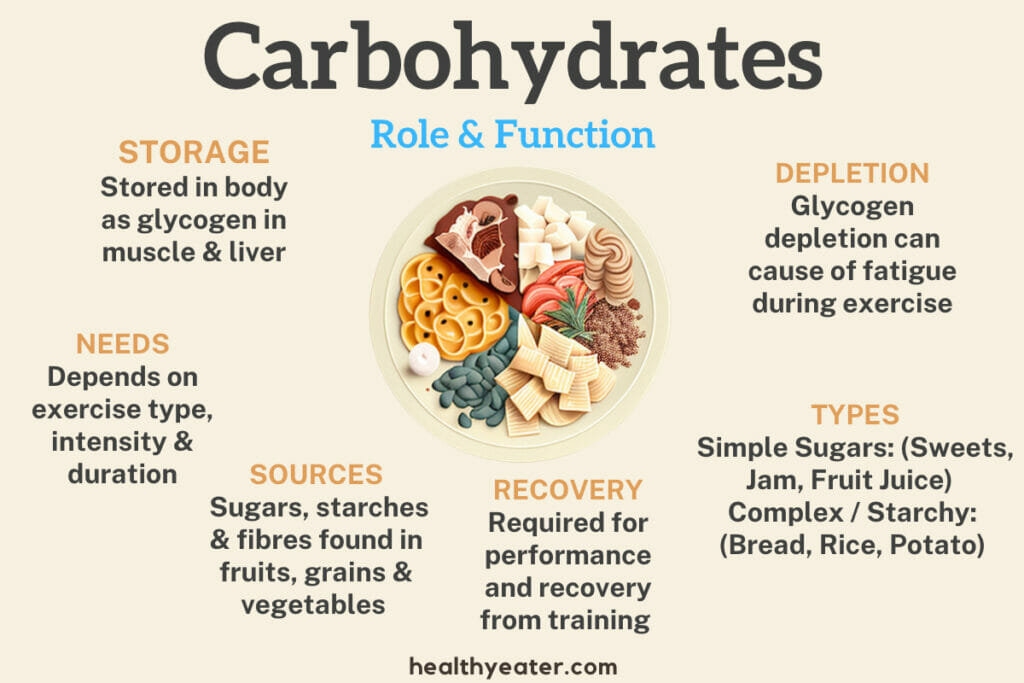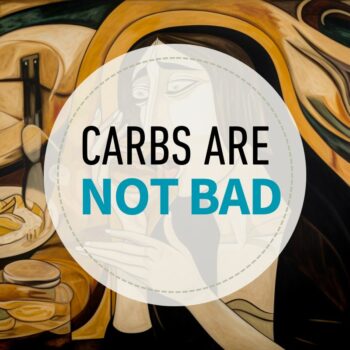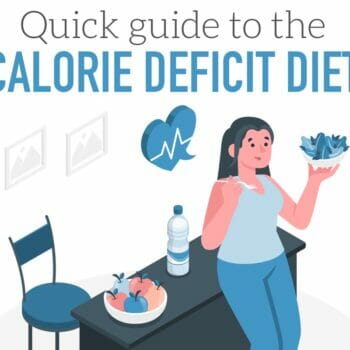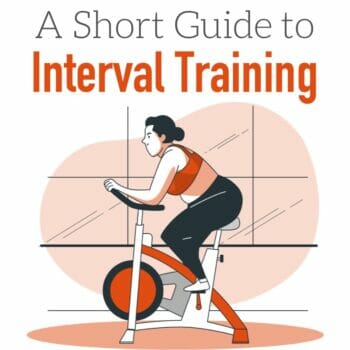Carbs are Not Bad – and Will Not Prevent Weight Loss
Many coaching clients I’ve worked with were taken aback when I advised them to consume more carbs.
Here are the typical responses:
- “But carbs make me gain weight…”
- “My body doesn’t do well with carbs…”
- “If I eat carbs, I gain two pounds overnight…”
- “I only lose weight if I cut carbs…”
Fortunately, my clients trusted me and began eating carbs, and discovered that what believed was a myth.
Here are the facts:
- Carbohydrates do not make you unhealthy.
- Carbs do not cause fat gain when eaten in relation to your body’s energy expenditure.
- Carbs do not prevent weight loss when eaten in relation to what your body needs.
- Your body digests carbs quite well because it’s written into your DNA.
Carbohydrates are your body’s preferred source of energy

The human body is a complex system that can draw energy from various foods, including fats and proteins. However, it’s primarily designed to utilize carbohydrates for energy as it’s the fastest and most efficient method.
Carbohydrates are easily converted into glucose, which the body requires for its functions.
Carbs fuel your muscles quite efficiently, which store the energy as glycogen.
How many carbs should you be eating?
Many foods that contain carbs are calorie-dense – they contain a lot of energy in a small portion.
Eliminating calorie-dense foods reduces the amount of energy consumed each day, which creates a calorie deficit and then fat loss as a result.
However, eliminating carbs isn’t viable long-term (for most people).
It’s wiser to gauge your body’s energy requirements and adjust your carbohydrate intake accordingly. This is called macro tracking.
Example: Marquis wants to lose 20 pounds. Considering her exercise, stats, and a 20% calorie deficit, she can eat 1350 calories. 40% of those calories should come from carbohydrates; therefore, she can eat 135 grams of carbs and still lose weight.
Calculate your carb target here.
Are some carbs better than others?
All carbs, made up of carbon, hydrogen, and oxygen, differ in chemical bonding, from simple glucose to complex starch. Yet, in terms of energy, your body treats them equally by converting them into glucose.
- Refined simple sugars are quickly taken into the bloodstream, causing an insulin surge, a short-lived elation, and a subsequent crash.
- Complex carbs, however, digest slower, converting to glucose more gradually. This slow release into the bloodstream results in more consistent blood glucose and insulin levels, ensuring sustained energy levels and avoiding sudden energy crashes.
Simple carbs are usually refined and lack fiber, vitamins, or minerals. They are known as “empty calories”. Complex carbs, on the other hand, are found in whole foods and come with the vitamins, fiber, and minerals your body needs.
Fruit is an exception to the rule because although fructose is a simple sugar, it’s bound to fiber, digests slower, and comes with lots of micronutrients.
Should I have a sweet treat? Yes – all good in moderation 🍪
Carbs to eat, carbs to limit
| Carbs to Limit | Carbs to Eat |
| White sugar | Fruit |
| Brown sugar | Whole grain wheat |
| Candy | Brown or wild rice |
| Refined white flour | Sweet Potatoes |
| Desserts | Whole, regular potatoes |
| Syrups | Squash |
| Ice cream | Quinoa |
| Chocolate | Oatmeal |
| Potato chips | Beans |
| Regular Soda | Lentils |
| Fruit juice | Carrots |
| Sweet cereals | Green veggies |
| Pop-tarts | Tomatoes |
How much sugar should you eat?
- 85 percent of your carbs should come from healthy sources with plenty of fiber and nutrition.
- 15 percent of your carbs can be from refined sugar sources.
A flexible approach to your diet means avoiding extreme restrictions and following a plan that can be sustained forever.
Example: if your daily carb goal is 200 grams, then aim for no more than 30 grams of refined sugars. This includes sugar from fruit juice, table sugar, corn syrup, and soft drinks.
View article sourcesSources
- Yang, Q., Zhang, Z., Gregg, E. W., Flanders, W. D., Merritt, R., & Hu, F. B. (2014). Added sugar intake and cardiovascular diseases mortality among US adults. JAMA internal medicine, 174(4), 516-524.
- Malik, V. S., & Hu, F. B. (2012). Sweeteners and risk of obesity and type 2 diabetes: the role of sugar-sweetened beverages. Current diabetes reports, 12(2), 195-203.
- Qi, Q., Chu, A. Y., Kang, J. H., Jensen, M. K., Curhan, G. C., Pasquale, L. R., … & Qi, L. (2012). Sugar-sweetened beverages and genetic risk of obesity. New England Journal of Medicine, 367(15), 1387-1396.


 Top 15 Healthy Carb, Protein, and Fat Rich Foods
Top 15 Healthy Carb, Protein, and Fat Rich Foods Carbs are Not Bad – and Will Not Prevent Weight Loss
Carbs are Not Bad – and Will Not Prevent Weight Loss Calorie Deficit Diet
Calorie Deficit Diet A Short Guide To High-Intensity Interval Training (HIIT)
A Short Guide To High-Intensity Interval Training (HIIT) What Causes Water Weight, Water Retention, and Weight Fluctuation?
What Causes Water Weight, Water Retention, and Weight Fluctuation?